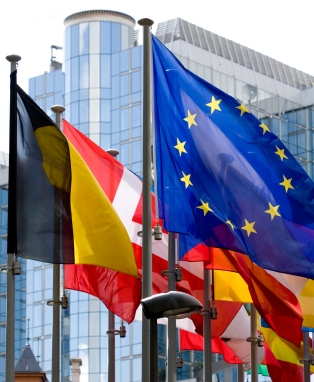Sign up to our newsletter Subscribe
Analysing Global Immunisation Expenditure

Sign up to our newsletter Subscribe


Biosimilar products in the European Union (EU) must go through a centralised procedure that licenses the product for use in EU Member States. Until experience grows in both approval and use of biosimilars, regulation inevitably will be somewhat case-by-case and…

Biosimilar products in the European Union (EU) must go through a centralised procedure that licenses the product for use in EU Member States. Until experience grows in both approval and use of biosimilars, regulation inevitably will be somewhat case-by-case and concerns about safety will be prominent.

This is the seventh in our series of posts based on the OHE seminar and summarises the remarks of Dr. Gopalan Narayanan of the UK’s Medicines and Healthcare Products Regulatory Agency (MHRA).
Biosimilar products in the European Union (EU) must go through a centralised procedure that licenses the product for use in EU Member States. To date, six biosimilars have been approved: two granulocyte colony-stimulating factor (G-CSF) products, two erythropoietins (EPOs), and two somatropins; two have been turned down (an insulin and an interferon-alpha). Experience with biosimilars, then, still is limited.
The data required for approval of a biosimilar are different than for small-molecule generics. This is because the biosimilar and the reference biological products are not identical. Differences in the drug substance and in production mean, for example, that demonstrating equivalent bioavailability and pharmacokinetics will not be enough to warrant approval. With biosimilars, the differences between the biosimilar and the originator could be more important than the similarities. Immunogenicity is a particular concern with biosimilars; good data on that are essential. With respect to efficacy, the range of acceptable variation from the originator still is determined case-by-case for biosimilars, on the basis of the clinical relevance of any observed difference.
Safety is a key concern with biosimilars at present. All new biosimilars must carry a black triangle warning to draw the attention of prescribers to potential safety issues. It is strongly recommended that clinicians prescribe by brand name and that substitution at the pharmacy level not occur. This is important because regulatory authorities may need to track an adverse event to determine whether it is product specific. Identifying potential problems should be facilitated by recent regulations that require a risk management plan (RMP) as part of all approval applications.
Until experience grows in both approval and use of biosimilars, regulation inevitably will be somewhat case-by-case. Companies would do well to seek advice from regulators, particularly when research suggests differences between the biosimilar and the originator product.
Dr Gopalan Narayanan is a medical assessor at the MHRA (Biologicals and Biotechnology Unit) and a member of several EMEA committees and working parties.
Publication now available for download: Mattison, N., Mestre-Ferrandiz, J. and Towse, A. eds (2010) Biosimilars: How much entry and price competition will result? London: Office of Health Economics.
An error has occurred, please try again later.
This website uses cookies so that we can provide you with the best user experience possible. Cookie information is stored in your browser and performs functions such as recognising you when you return to our website and helping our team to understand which sections of the website you find most interesting and useful.
Strictly Necessary Cookie should be enabled at all times so that we can save your preferences for cookie settings.
If you disable this cookie, we will not be able to save your preferences. This means that every time you visit this website you will need to enable or disable cookies again.
This website uses Google Analytics to collect anonymous information such as the number of visitors to the site, and the most popular pages.
Keeping this cookie enabled helps us to improve our website.
Please enable Strictly Necessary Cookies first so that we can save your preferences!



